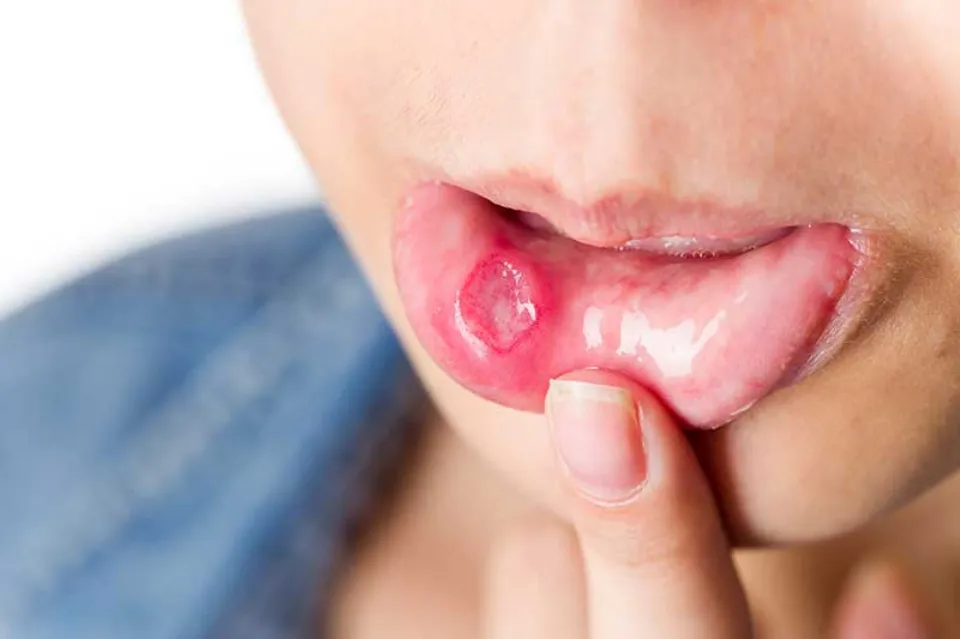
Do Braces Cause Canker Sores – How to Deal with It?
You begin experiencing a tingling or burning sensation in your mouth a few weeks into your orthodontic treatment. Canker sores start to develop after a few days.
Canker sores are brought on by braces. With traditional metal braces, it’s possible to frequently develop canker sores in your mouth. But once you know what causes them, it’s relatively simple to avoid them.
What Are Canker Sores?
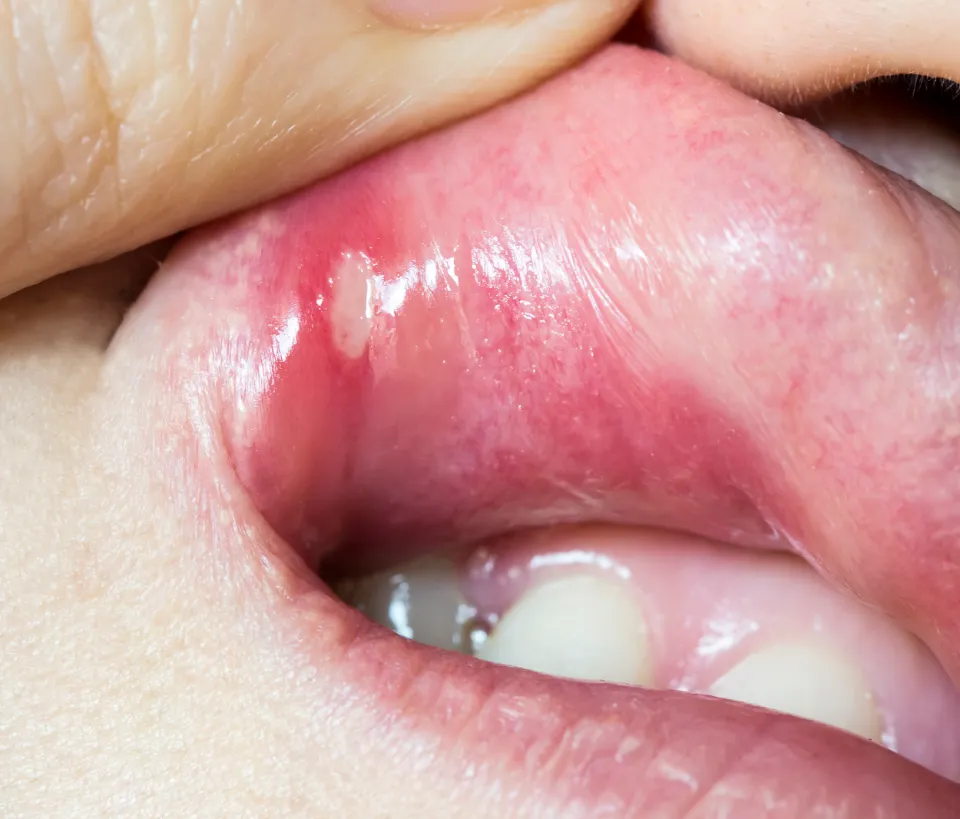
Let’s first discuss what canker sores are before discussing canker sores with braces. Aphthous ulcers also referred to as canker sores are tiny, shallow lesions or sores that develop inside the mouth (i.e., inside of the lips or cheeks, on the tongue, along the gum line, on the roof of the mouth, etc.). A canker sore typically has a red border and is flat, white, or yellowish in color.
Most frequently, an individual with canker sores will have a cluster of ulcers. It is also possible to only have one canker sore, though. Painful canker sores can make it difficult to eat or speak. Fortunately, canker sores don’t spread easily and rarely result in a fever.
Cold sores and dental abscesses are two additional sores that can develop in the mouth area, but it is fairly simple to tell them apart. Cold sores are fluid-filled blisters that typically appear on the outside of the mouth, whereas canker sores are flat and inside the mouth.
The gums can also develop abscesses, which look like pimples, contain pus, and are frequently accompanied by swollen gums, fever, swollen lymph nodes, and/or excruciating tooth pain. Visit your dentist as soon as you can to have a dental abscess examined and treated if you suspect you have one.
Can Braces Cause Canker Sores?
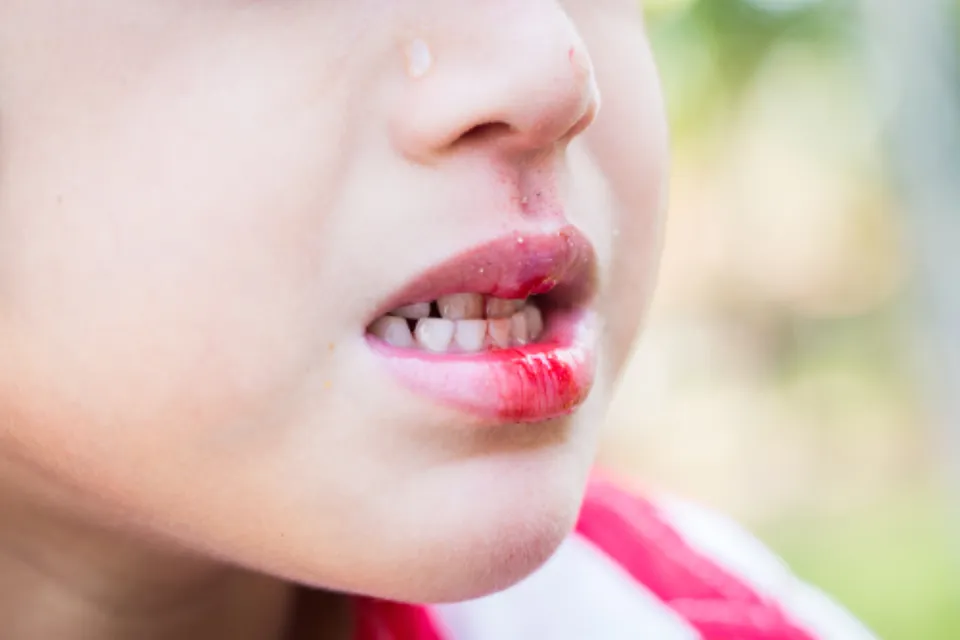
Unfortunately, no one is exactly sure why children, teenagers, or adults develop canker sores. Although they are not likely to do so, dental braces can undoubtedly make canker sores worse. Patients with braces are more likely to develop canker sores if they have a history of mouth ulcers or are predisposed to developing them in the first place.
Read More: How Do Braces Work – Will Braces Straighten Teeth
Canker sores are most frequently associated with the beginning of treatment when wearing braces. Your mouth needs a few weeks to adjust to your brackets and wires being there. Eventually, the tissues in your mouth will “toughen” up, but during this adjustment period, your braces may irritate the inside of your lips and cheeks, as well as your tongue. You are more prone to developing canker sores when this occurs.
The good news from this is that you shouldn’t get canker sores from braces anymore once you get used to them and they stop irritating you. Your braces probably won’t make much of a difference, but other triggers could still lead to an episode.
Common Triggers to Avoid Canker Sores
- Stress: It’s well known that stress weakens your immune system, which makes it simpler for canker sores to develop. To prevent canker sores, be sure to maintain a healthy level of stress!
- Tissue Injury: Cuts or scrapes inside the mouth can increase your risk of developing canker sores.
- Avoid eating foods with a lot of acidity, such as tomatoes, lemons, and pineapples, as they can cause canker sores.
- Having an infection in your body increases your risk of developing a canker sore.
It is simpler to prevent canker sores if you are aware of what causes them for you. Do not be afraid to ask for more dental wax or to have the areas where your braces are causing you discomfort examined.
To help prevent canker sore occurrences, you can also change the way you take care of your mouth.
- Rinse your mouth each day with salt water
- Using a soft-bristled toothbrush will help to avoid irritating oral tissue
- Also, try using toothpaste that doesn’t contain sodium lauryl sulfate
How Long Do Canker Sores Last and Will They Come Back?
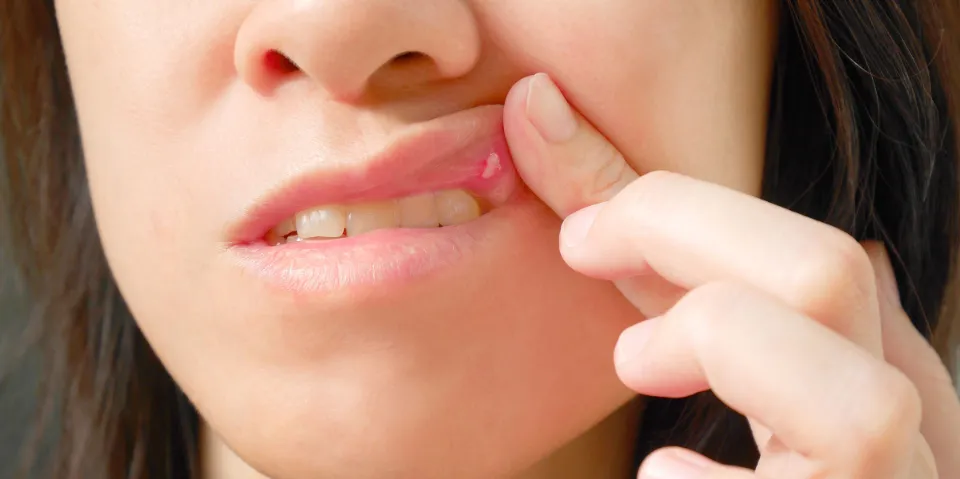
Seven to fourteen days is the typical duration of a canker sore. With the exception of severe, large, or frequent recurrences, mouth ulcers frequently heal on their own and don’t need medical attention.
The answer to the question of whether canker sores recur is yes. According to Stanford Children’s Health, 3 out of 10 children who have canker sores experience recurrences for years after the initial outbreak. Canker sores typically first manifest between the ages of 10 and 19 years old.
How to Prevent Canker Sores from Braces
Canker sores can be brought on by a variety of factors, as you can see. Reduce these triggers to learn how to avoid canker sores while wearing braces. To keep mouth ulcers at bay during your treatment (or any time):
- Brushing your teeth while wearing braces in the morning, after meals and snacks, and just before bed will help you maintain excellent oral hygiene. Also, floss once each day.
- To avoid unintentionally irritating your oral tissues, use a toothbrush with soft bristles and toothpaste without sodium lauryl sulfate.
- Rinse your mouth as often as necessary with saltwater, which is made by dissolving 14 teaspoon of table salt in 8 ounces of warm water. As it can aid in the healing of your mouth’s soft tissues, this is particularly crucial when you first begin braces treatment. When a cold or other illness starts to develop, you might also want to start using a saltwater rinse.
- Enjoy waxing your braces! To apply wax to braces, start by drying the parts of the appliance that are bothering you with a fresh tissue or cotton swab. Next, break off a tiny piece of orthodontic relief wax and warm it up by rolling it between your fingers. By applying the wax to the problematic areas of your braces, you can create a barrier between your mouth and the appliance. You may be able to avoid a mouth ulcer from braces entirely if you do this at the first sign of irritation.
- The best way to manage your stress is to take some time for yourself, engage in physical activity, practice yoga, engage in deep breathing, or simply assign some of the things on your to-do list to someone else.
- Prevent mouth irritation by avoiding foods like popcorn, chips, and pretzels as well as foods that are extremely acidic or spicy, to which you are allergic or sensitive.
- Make sure you’re getting all the vitamins and minerals you need by eating a healthy, balanced diet.
- To prevent mouth irritants and injuries, put on a mouthguard when you play sports.
How to Treat Mouth Sores from Braces?
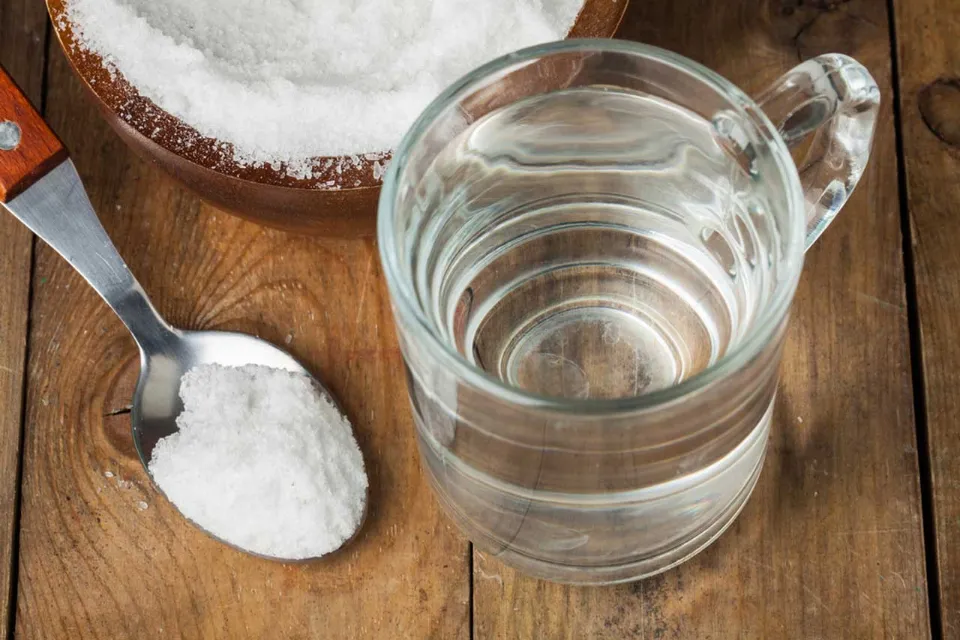
Even though using our mouth sore prevention advice will be helpful, if you still manage to develop them, they will go away on their own in a week or two. In order to achieve canker sore relief in the meantime, try these steps:
- Use the saltwater rinse we mentioned to swish around. Resolve ½ teaspoon of salt in a glass of warm water, swish it around your mouth while letting it sit on the area where you have canker sores, and then spit it out. As often as necessary, repeat.
- Pick up whatever over-the-counter painkiller you would use for a headache.
- Keep eating soft, bland foods while the sores heal. Include cold foods and beverages in your diet as well since they will numb your mouth and provide some momentary pain relief.
- When parts of your braces are bothering you or making your mouth sores worse, apply orthodontic wax to those areas.
- Maintaining good oral hygiene will help you stay healthy. To avoid touching the sores, you should brush and floss your teeth very gently and carefully. Make use of a gentle toothpaste and a toothbrush with soft bristles.
- Drink a lot of water. Healing is aided by staying hydrated!
- Get enough sleep.
- A mouthwash, such as Colgate Peroxyl Antiseptic Mouth Sore Rinse, should be used once or twice daily. Because it doesn’t contain alcohol, this mouthwash won’t aggravate your mouth further. Additionally, it treats canker sores, lessens oral bacterial growth, and keeps ulcers clean.
Conclusion
You can rinse your mouth with warm salt water and get lots of rest to ease the discomfort of canker sores. Stick to soft and cold foods, get plenty of rest, floss, and drink plenty of water. You might want to occasionally take an over-the-counter painkiller, much like you would if you had a headache.
Speak with your orthodontist if your canker sores continue to occur to see if there is anything else they can do to assist. They might be able to provide you with antibacterial gels, clinical rinses, or washes that can relieve your symptoms.
FAQs
How Long Do Canker Sores Last from Braces?
In order to prevent canker sores, ensure that your stress levels are healthy. Your susceptibility to canker sores is increased by internal cuts or scrapes. Sores may develop from any injuries caused by braces or cutting foods. On the tongue, gums, or along the back of the mouth, canker sores can appear and last for about a week.
How Do You Prevent Mouth Sores With Braces?
Mouth ulcers caused by braces can be kept clean and sterile with anti-septic rinses, such as mouthwash containing hydrogen peroxide. The best way to speed up healing and stop infection is to keep mouth sores clean.
Can Braces Cause Mouth Ulcers?
Ulcers may form in the mouth’s soft tissues as a result of braces occasionally causing irritation or damage to them. The brackets and wires of braces may also make it more challenging to maintain good oral hygiene, which may in turn increase the risk of developing ulcers.
What Do Mouth Sores from Braces Look Like?
In addition to being frequently round and swollen, mouth ulcers can also be colored white, red, yellow, or gray. When an infection is suspected, it may be a good idea to call the orthodontist because some colors can reflect infection. However, there are numerous methods for treating mouth sores at home.




Average Rating